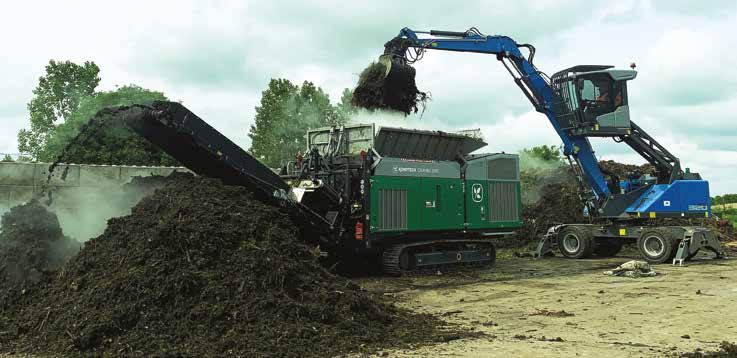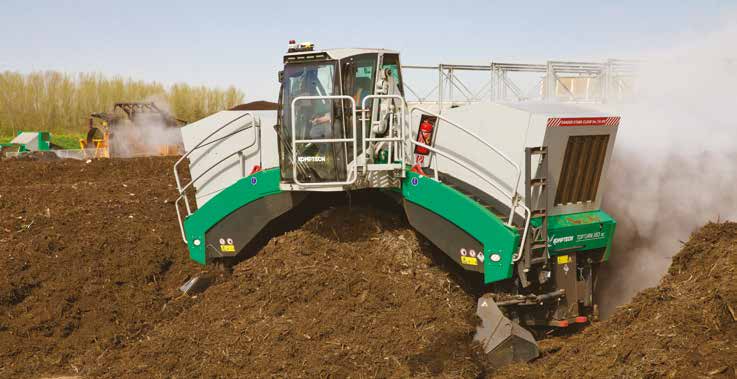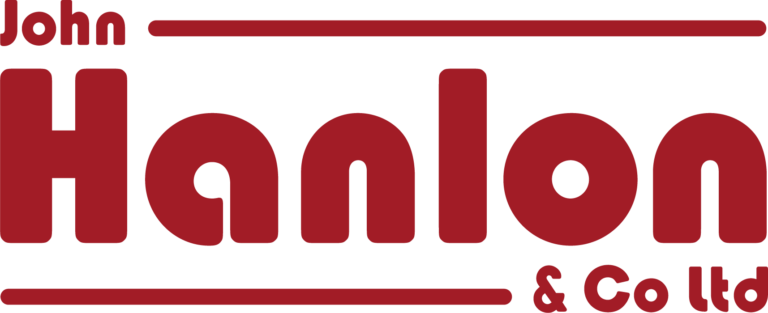For some operators with municipal contracts processing green waste is outside their core activity, which is where a composting specialist bridges the gap.
In doing this, Lincolnshire-based Ed Hall Services has adopted a niche business model, running composting facilities across the country.
Founded in 1998 by Nikki Dixon’s father, Ed Hall, this family business has blossomed into a significant force in the industry. Today, it manages over 250,000 tonnes a year at various locations around the UK.
“The first green waste we shredded was back in 1998,” recalls Nikki, reflecting on the company’s origin. “At that time, there was no PAS100 specification; we worked to a protocol, but there wasn’t an official accreditation.”
Some local authorities had begun to offer a garden waste collection, yet treating this organic waste was not as sophisticated as it is today, often simply shredding it to then use for landfill cover.
As the company evolved, the first machine it purchased from Komptech was a Magnum screen in 2000, enabling them to improve separation of finished compost from oversize and contaminants, improving consistency in the output material.
“Our next machine was in 2001, Komptech had developed their Hurrikan Windsifter which teamed up very well with the Magnum,” she recounts. “It was a very long setup, with one machine behind the other.”
The addition of a second Magnum, in 2002, reflected further expansion in Ed Hall Services’ capacity. As the company grew, so did its range of Komptech machines, each addition reflecting business growth.
The introduction of the Crambo slow-speed shredder in 2008 marked a turning point. “We’ve never not used a Crambo since 2008,” Nikki asserts. This shift to a more sophisticated shredding technology allowed for more effective processing of the compacted waste, with the Crambo’s ability to handle varying profiles of green waste significantly improving operational efficiency.
This was followed by the acquisition of a Mustang, which in 2014 was then in turn replaced by the Nemus, Komptech’s newer, more fuel-efficient trommel screen. In doing so, Ed Hall was the first UK customer to acquire a Nemus for refining additional grades of composted material.

are deployed on numerous sites
managed by Ed Hall Services
Teamwork and efficiency
Ed Hall Services has evolved to become a major force in the industry, managing a substantial amount of garden waste. Led by herself, along with her husband Andrew and Ben Ashton, the Head of Operations, Nikki Dixon emphasises how it’s the whole team, comprising around 34 dedicated staff, that is the driving force behind the company’s impressive scale of operations.
As well as investing in its people, Ed Hall Services has continually upgraded its equipment as the operation has grown, currently running six Crambo shredders across the country, along the way trading some older models in for the newer Crambo 5200D Direct, which offers more versatility.
“For me, the Crambo has always been the best shredder out there. The steel is always a couple of mm thicker than their competitors. Over the years shredders wear away, so these things do matter.”
In addition, the company has invested in other machines in the Komptech portfolio, including the recent acquisition of an L3 Star Screen, which is able to handle a greater throughput of material and has replaced two trommel screens the company was running. For Dixon, the economics of this are clear cut: “We are running one machine instead of two. So there’s one lot of servicing, instead of two… There are cost savings all the way through, from insurance, to oil for servicing, disposal, et cetera. It’s more environmentally friendly. And it’s lower fuel costs for us just running the one machine.
“It probably gets looked after better; if you’ve got one person servicing
two trommel screens, it can be tight for time. But just servicing the one machine, it is much easier for them and it’s less work for the loading shovel as well. It’s not rushing about as much, it’s better for the operator.”
There are also occupational health benefits from switching to the L3. ”It’s incredibly quiet compared to the trommels. You can walk on site and have to ask if it’s on,” she notes.
“And the other thing for the L3 over a trommel is that the activity takes place inside it, so you don’t get as many bioaerosols exposed into the air as you do with the trommel.
“It depends on the time of year but if it’s August and we’ve had a particularly dry summer, there’s more dust, and as the trommel goes round, there’s quite a lot of dust, but less so with an L3 screen. So for us it’s just a win-win.”
Although Ed Hall Services operates across multiple sites, this is the only one to also have a Komptech TopTurn, for turning over material in the windrow: “It’s a phenomenal machine. It’s just regrettable that all sites don’t have space to accommodate one.”
Although their top turner is only used a couple of hours a week, it more than makes up for the time it’s not in use. “The work it can achieve would take a loading shovel all week to do, probably two loading shovels.
“It turns [the windrow] better than anything. It is like putting it through a shredder again. You are incorporating oxygen very evenly to the material. So it just maximises every stage of the process. You get less oversize, which makes a difference to quality and overall costs and that’s because of the rotor spinning across – I always think it’s like a busy mole!”

similar to the one deployed
by Ed Hall Services
Partnership
The relationship with Komptech, facilitated through the John Hanlon dealership, has been a significant factor in the growth trajectory of Ed Hall Services. “Komptech really knows how to build a machine,” remarks Nikki. “Everything’s just a little bit better than their competitors, as is their research and development. They’re absolutely on it.”
Although maintenance is managed in-house by her team, the advent of telematics means that John Hanlon and Komptech are able to anticipate when manufacturer servicing is required.
However, for her business, the back-up service provided has been as important. When accounting for what makes an effective partnership, Nikki cites some key metrics: “What happens when something goes wrong? What do they do? How quickly does it get fixed and if it can’t be fixed, how will they help you? Do they always pick up the phone? With Hanlon’s you just get tick, tick, tick.”

